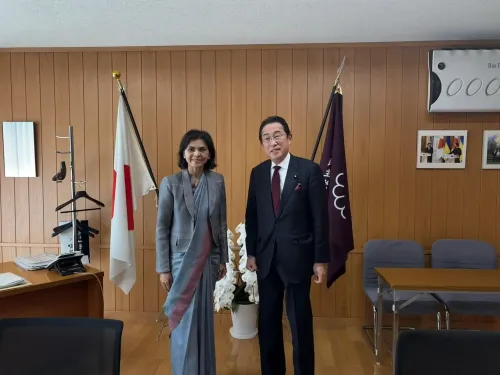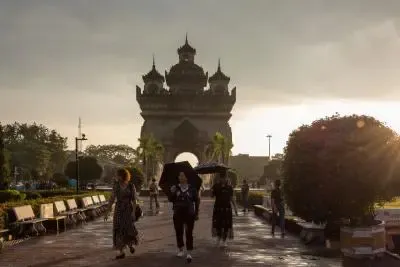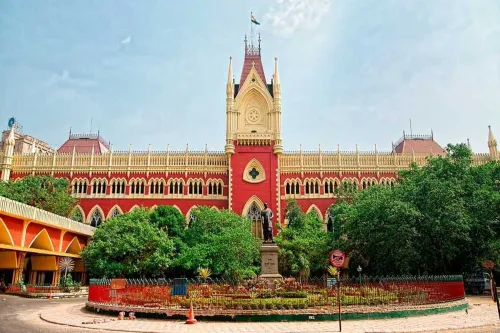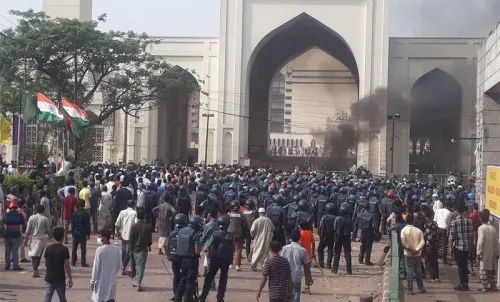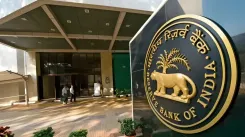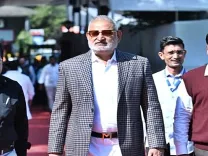How Do Our Long-Standing Traditions Uphold the Integrity of Democracy? Rajasthan Guv
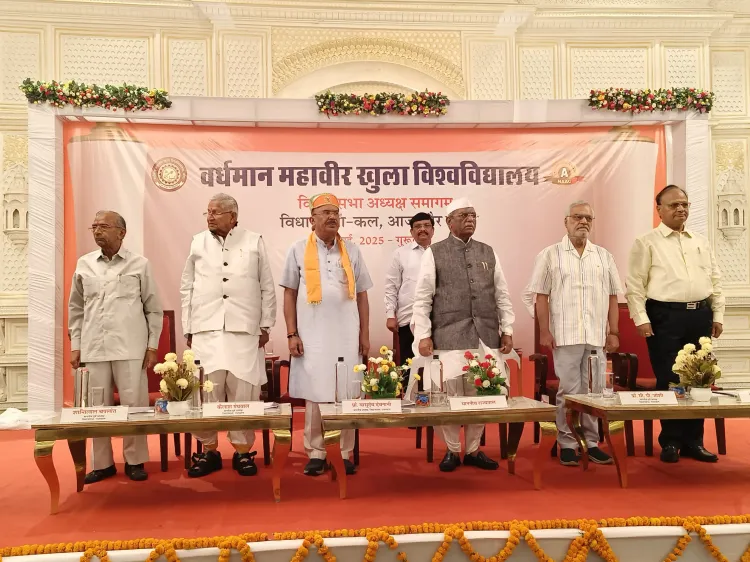
Synopsis
Key Takeaways
- The workshop highlighted the evolution of legislative processes in India.
- Governor Bagde emphasized the importance of traditions in maintaining democratic dignity.
- Concerns regarding declining parliamentary decorum were raised.
- The Rajasthan Assembly is leading in digital governance.
- Training for MLAs on decorum is essential for future effectiveness.
Jaipur, May 29 (NationPress) A workshop entitled "Vidhansabha: Kal, Aaj, and Kal" was held in Udaipur, organized by Vardhman Mahaveer Open University, Kota, to discuss the development and future of legislative processes in India.
During the event, Rajasthan Governor Haribhau Bagde served as the chief guest and underscored the robustness of India’s parliamentary democracy, firmly rooted in its rich cultural and traditional values.
“Despite a noticeable decline in decorum recently, our deeply embedded traditions persist in protecting the dignity and future of our democratic framework,” he stated.
The workshop was presided over by Rajasthan Assembly Speaker Vasudev Devnani, with former Speakers Kailash Meghwal, Shantilal Chaplot, and C.P. Joshi attending as special guests.
In his speech, Devnani highlighted the progress in transparency and digital governance within the Rajasthan Legislative Assembly.
“Our Assembly is at the forefront nationally. With proceedings streamed live on YouTube, over 80 million citizens can directly engage with the legislative process,” he remarked.
He noted that the Rajasthan Assembly is transitioning towards a paperless system, with more than 70 percent of MLAs now utilizing iPads for their legislative duties.
Full implementation is anticipated in the upcoming sessions. However, he also expressed concern regarding the declining quality of debates and the rise in partisanship.
“In the past, there was mutual respect between the ruling and opposition parties. Nowadays, political polarization and the thirst for publicity lead to disruptions. Even the media often highlights negativity instead of fostering constructive dialogues,” he pointed out.
Devnani emphasized the necessity for systematic training of MLAs after elections, focusing on parliamentary decorum and conduct.
He likened the role of the Speaker to that of a mother—strict when required but fundamentally nurturing and inclusive. Governor Bagde commented on the shift from issue-based discussions to personal attacks within the Assembly.
“Previously, diverse ideologies coexisted with respect. Today, bitterness frequently overshadows dialogue. Nevertheless, Rajasthan remains distinguished due to its cultured and disciplined populace, and their values are reflected in their representatives,” he remarked.
Kailash Meghwal observed that while change is unavoidable, the decline in serious legislative discussions is alarming. “The use of the Assembly library has diminished, and lawmaking is frequently viewed as a formality,” he noted.
Shantilal Chaplot highlighted India’s ancient democratic traditions, referencing the eras of Lord Ram, Rishabhdev, and Mahavir Swami as examples of democratic governance.
He stressed the Legislature’s dual role in law-making and executive oversight. Dr. C.P. Joshi, beginning his address with the Preamble of the Indian Constitution, reaffirmed that the essence of parliamentary democracy lies in its foundational values: justice, equality, secularism, and socialism.
The workshop saw participation from various intellectuals and public representatives, including Udaipur City MLA Tarachand Jain, Rural MLA Phool Singh Meena, and Vardhman Mahaveer Open University Vice-Chancellor Kailash Sodani.


